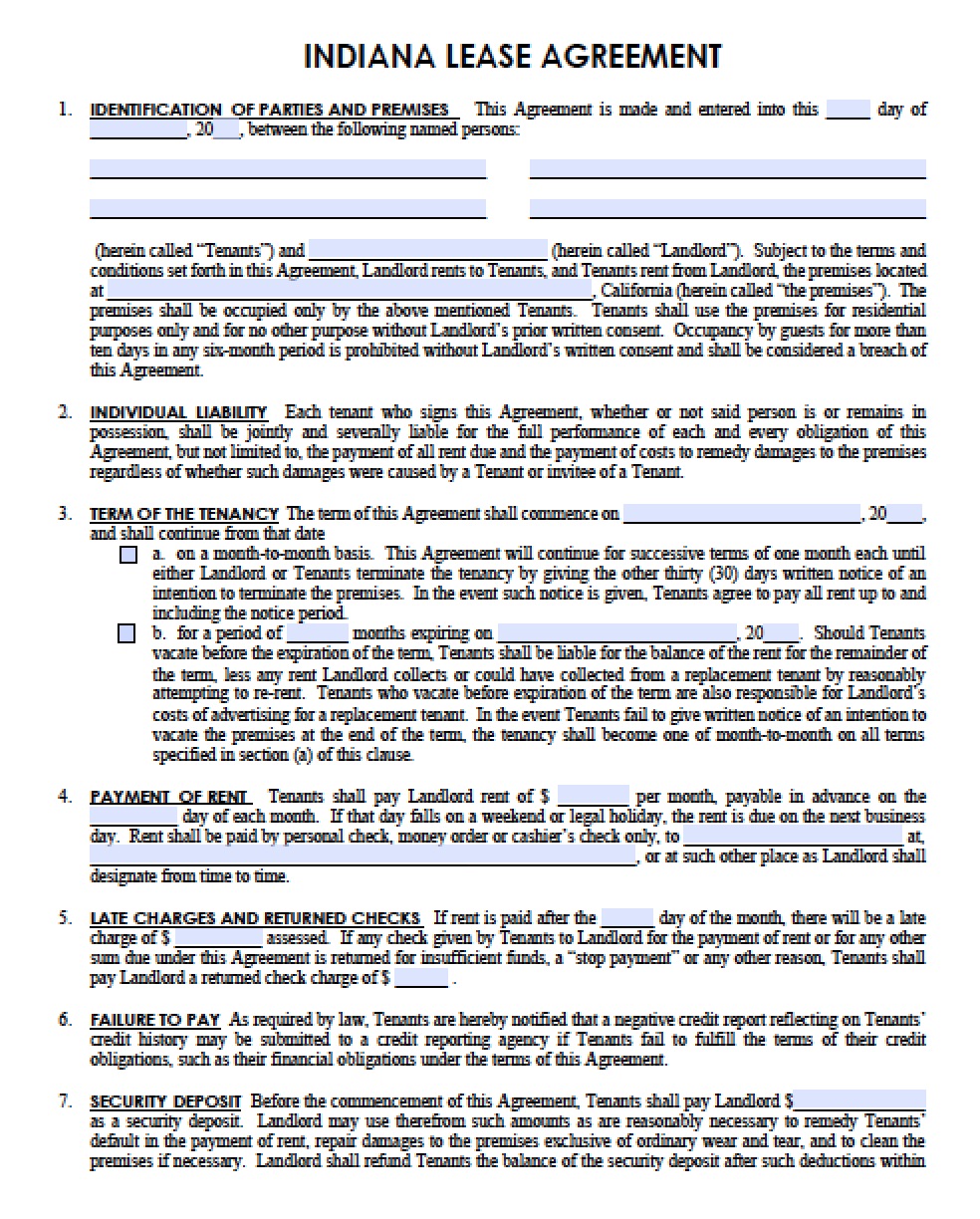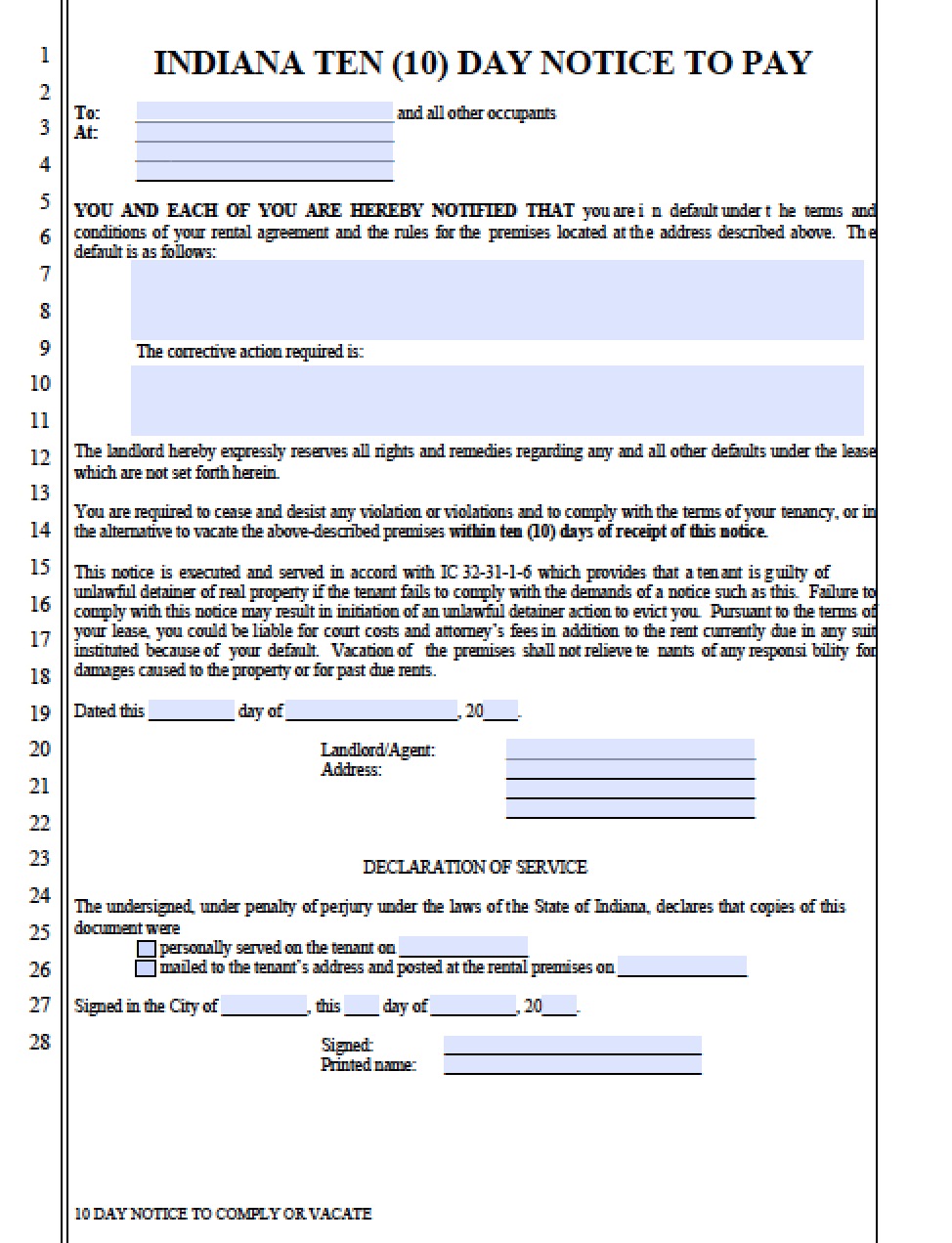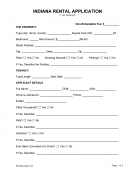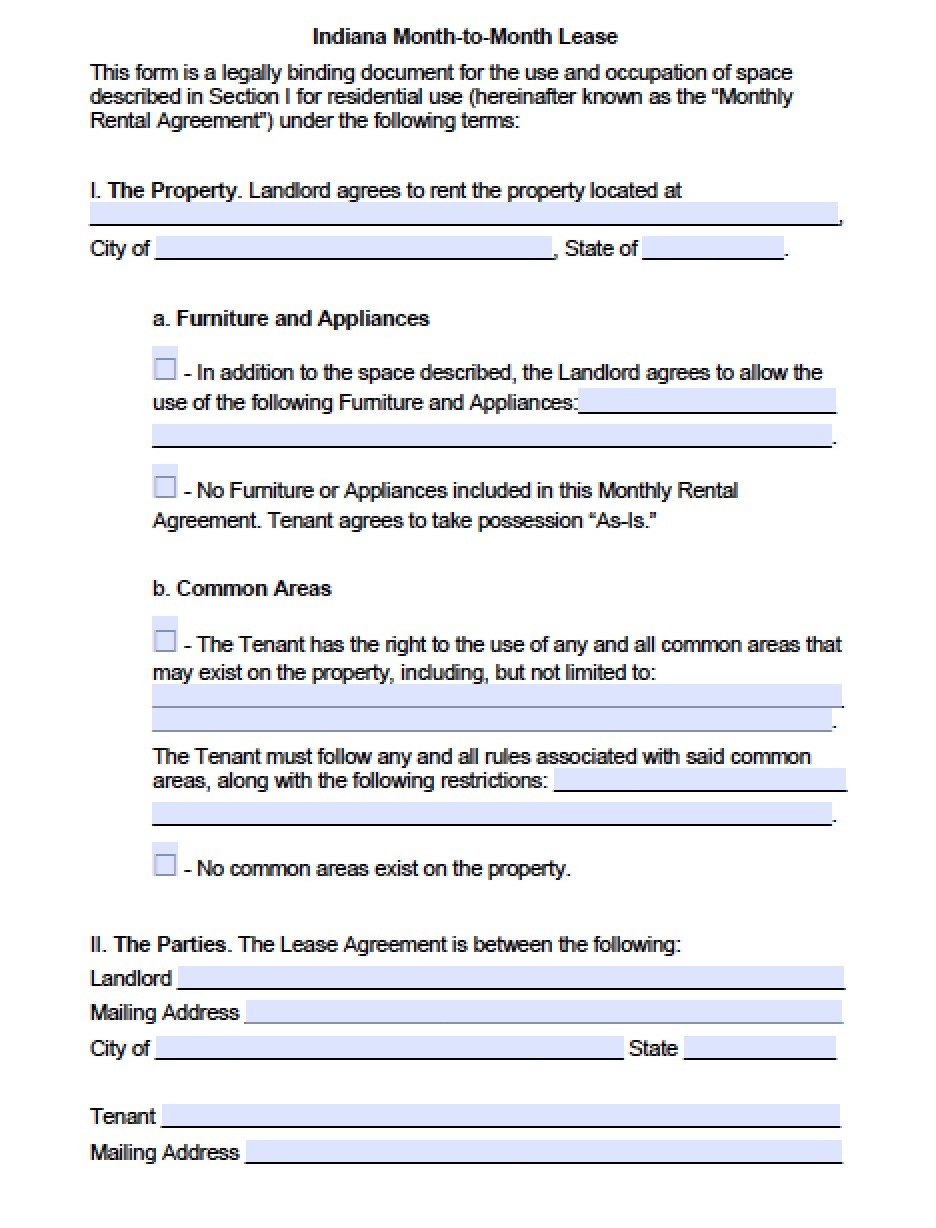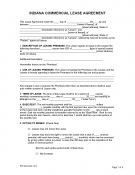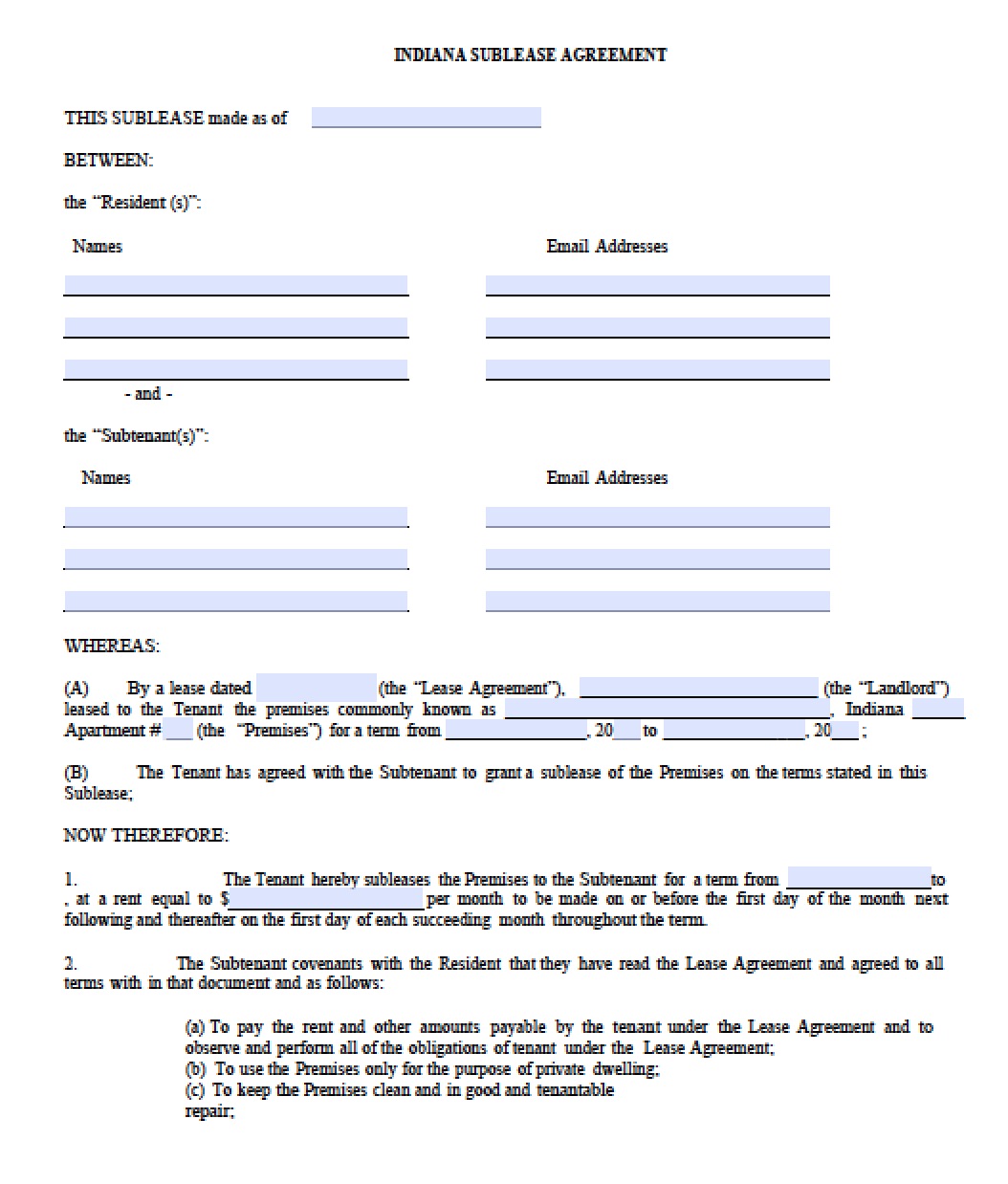Indiana lease agreements are between landlords and tenants that include the terms for a rental contract. Most residential leases are for 1-year, although can be for any time period agreed by the parties. The rent is due at the time and place agreed, most commonly on the 1st of the month. The landlord will usually require the tenant is screened with a rental application before signing a lease with a non-refundable fee for the credit and background check.
Indiana Rental Lease Agreement Templates | PDF
Indiana Lease Agreements
The Indiana standard residential lease agreement is the most common rental contract as it allows for a straightforward one (1) year agreement with a monthly payment schedule. The document is compatible with State law and clearly outlines the terms and conditions of each party’s responsibilities. The landlord may utilize a rental application to ensure that they are accepting only the most diligent and financially secure tenants. A security deposit should be required in addition to the application from the tenant…
The Indiana ten (10) day notice to quit is a document that landlords can use to serve a tenant who is late on their monthly rent payment. The notice grants ten (10) days for the tenant to pay all the rent that is due, otherwise, they will be forced to move out or face eviction. If the tenant fails to pay or move out, the landlord will be able to commence legal proceedings and have them removed from the premises….
The Indiana rental application can be used by landlords to view their potential tenants’ criminal, rental, employment, and credit history. This will give the landlord a clear idea of whether an individual is a suitable candidate while enabling them to determine the terms of the lease agreement including the security deposit amount. State law permits the landlord to charge a non-refundable fee for verifying the tenant’s background.
The Indiana month-to-month lease is designed for individuals who desire a short term lease or who would like to have no set termination date. The lease is renewed when the tenant makes their payment at the beginning of each rental period. The landlord will usually ask for a security deposit from the tenant, as it will cover any tenant-caused damage to the property or unpaid rent if they leave without notice. The landlord typically refunds the tenant the cost of…
An Indiana commercial lease agreement is designed for property owners looking to rent their property to a business owner. While this document is similar to other types of rental contracts, it is different in the fact that there are three separate ways of structuring the lease (Gross, Modified-Gross, and Triple Net (NNN)). For the Gross type, the landlord typically pays for every cost related to the property, with the tenant only contributing a fixed monthly payment. A Modified-Gross contract splits…
The Indiana sublease agreement works by having the original tenant of a property (the “sublessor”) lease out the property to another individual (the “sublessee”). In many arrangements, both the original tenant and the sublessee live on the same property and contribute to the monthly rent (unless the sublessor rents the entire space). In a sublease, all of the responsibility rests on the sublessor, not the landlord. For example, if the sublessee decides to stop making their monthly payment, the sublessor…
DISCLOSURES
Disclosure of Managers and Agents (IC 32-31-3-18) – The landlord must disclose and name an individual or entity located within the State that is authorized to manage the premises.
Lead-Based Paint – Required for any housing built before 1978 per federal law; informs the tenant of the presence of toxic paint.
SECURITY DEPOSITS
Maximum – There is no State law prohibiting a landlord from charging as much as desired.
Returning (IC 32-31-3-12) – The landlord must give the deposit back to the tenant within forty-five (45) days from the contract end date.
LANDLORD’S ACCESS/ENTRY
Entry (IC 32-31-5-6) – The landlord must give “reasonable notice” before entering the premises.

